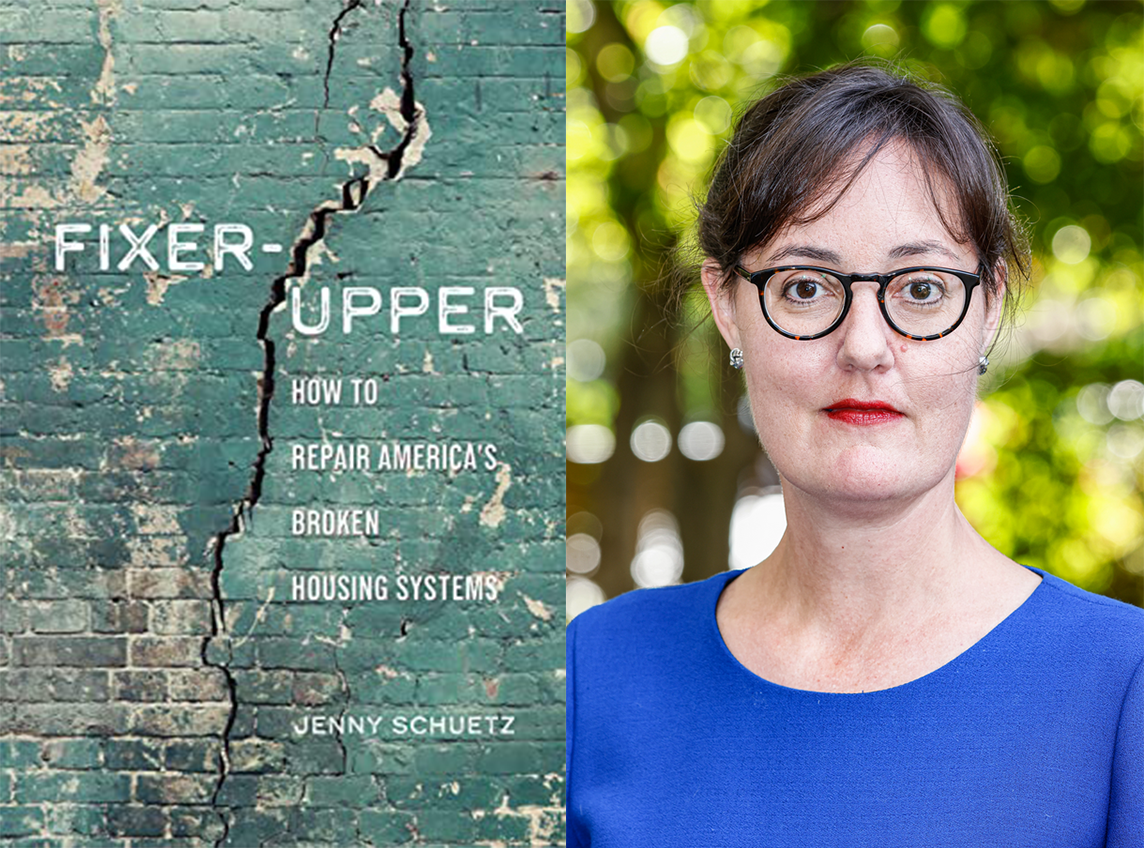
While the politics of housing remain "wicked," issues of supply and affordability are getting more attention than ever, and there are some signs of progress in places around the country, according to Jenny Schuetz, senior fellow at Brookings Metro and author of Fixer Upper: How to Repair America's Broken Housing Systems [Brookings Institution Press, 2022]. She spoke to a webinar hosted by the Harvard Joint Center for Housing Studies.
Schuetz summarized the housing policy problem in America: production has not kept pace with population growth, especially since 2008 and especially in high-demand places (cf. Sisson 2021). Where houses are being built, they're often in "the wrong places," the outskirts of metropolitan areas where people face difficulty getting to their jobs, and where they face greater threat from environmental catastrophes like forest fires. Commuting from the outskirts exacerbates traffic congestion and climate change. Everywhere in the United States, whether in Silicon Valley or small-town Iowa, the lowest income renters have little cash left after paying rent, even for housing that is barely structurally-sound. Homeownership is the root of the racial wealth gap, due to accumulated effects of past discrimination, so that even homeowners of color have half or less the household wealth of white homeowners in the same area (cf. Perry 2020).
Housing problems are widely-recognized, but strong systemic disincentives prevent addressing them, she noted. Most people in America rely on homeownership to build wealth, meaning their well-being is fundamentally threatened by new construction that might negatively affect their property values. Cities, too, rely on their property tax bases to fund services, and few if any can risk seeing that base eroded. As a result, zoning codes allow only single family detached housing, sometimes specifying large minimum lot sizes, and motivated neighbors are allowed "veto power over new development." (Older middle-class homeowners are typically more politically engaged than their poorer and younger would-be neighbors.) Historic preservation ordinances are also used to prevent change.
Schuetz assembled an integrated set of recommendations for governments at all levels to address the issue. Local governments should reform rules for housing production, and allow more diversity of prices and types across the city (cf. Cortright 2017). They may find that they get more for their housing dollar when they acquire and rehabilitate existing buildings than when funding new construction. State governments should facilitate regional revenue and cost sharing among localities in the same metropolitan area, and nudge towns towards removing legal obstacles to housing. The federal government should provide more financial assistance to low-income people to increase their choice of housing, and encourage ways of wealth-building besides homeownership. She noted the 2021 infrastructure bill included more discretionary money for the Department of Housing and Urban Development for competitive housing grants outside of central cities.
In response, Christian Dorsey, vice chair of the Arlington (VA) county board and a member of the D.C. regional council of governments, agreed with the political challenge of local housing policy. He called it the "third rail" of local politics, akin to Social Security at the national level, because of the fear it creates among existing residents ("more for others means less for me"). He urged housing advocates to engage neighbors "with grace," suggesting they will find they are motivated by (1) liking the communities in which they live (which is a good thing, and can be addressed by pointing up how new housing will benefit those communities) and (2) fear they will personally bear the cost of the new infrastructure required. The latter can be addressed by making infrastructure "part of the regular program" of city services rather than adjunct to housing policy.
Schuetz suggested three political arguments for smaller denser housing: (1) businesses can choose from a bigger pool of nearby talent; (2) easier on the climate; and (3) rectifying past racial discrimination. She noted there has been little systematic study of the economic impact of modest upzoning, because there have been as yet only a few recent cases on a citywide base. Dorsey added that Arlington's housing reforms have seen "no corresponding decline in property values," nor in consumer demand, suggesting the negative impact on family wealth is "more of a canard" than established truth.
I'm all for hopeful noises on seemingly intractable issues!
SEE ALSO:
"Housing Policy," 1 July 2021
"Onlining About Redlining: MLK Day 2022," 18 July 2022




No comments:
Post a Comment